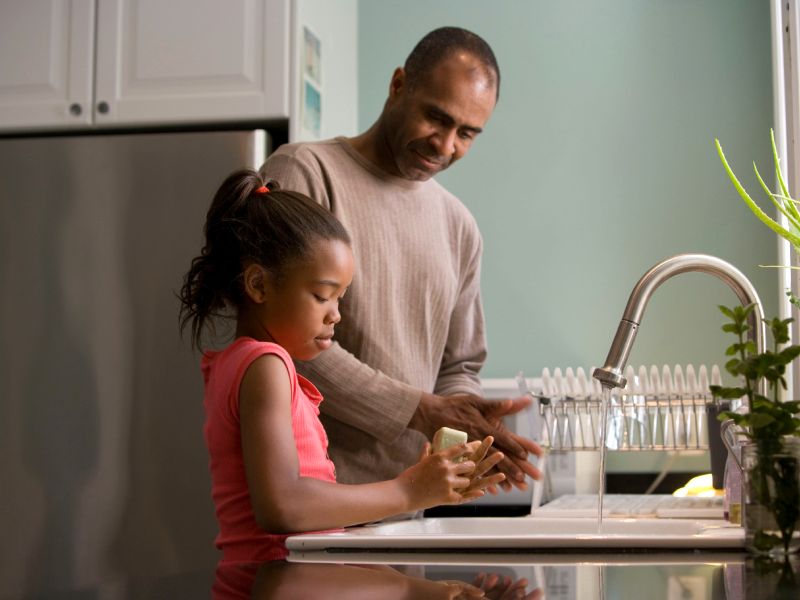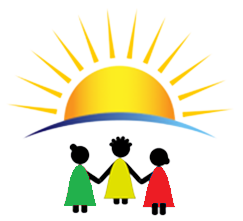The major activity of Goah is selecting deprived street children and supporting them by providing food allowance, donating clothes, giving educational material and school uniform support, providing personal hygiene and sanitation allowance, giving medical examination and drug support, giving tutorial classes and rewarding top students, training children in self-reliance skills, providing training and counseling to children, their caregivers, and volunteers from the community. Goah will give self-reliance skill training to children who are exposed to the worst forms of child labor due to the need to care for their sick parents. The details of each activity are given below.
Selection of Beneficiaries
Efforts are made to reach the most vulnerable orphans when selecting children for support. There is no discrimination based on race, religion, or gender. Children are selected according to the following criteria: a child who has lost one or both parents, whose parents are too ill to support them, children who live on the streets, children exposed to various forms of abuse, and school-aged children who cannot afford to attend school are prioritized.
In selection of foster children, a joint orphans and vulnerable children (OVC) task force comprising of community representatives, Community based organizations (CBOs) and Goah project staffs will take the responsibility of recruiting new children.
Once accepted, the child is brought into the Goah Children Centre, where a social worker is assigned, and the child is matched with a qualified caregiver. The length of their stay depends on how long it takes to organize long-term care. Each child’s progress is closely monitored during their stay and following placement, with necessary interventions taken as required. Children are responsible for attending school, participating in community service, writing monthly letters to their personal sponsors, and accompanying caregivers to receive monthly support.
Selection of Care Homes
Care homes are selected with the participation of local community representatives. Key factors for selection include: caregivers must love children and be committed to raising them as their own. Relatives willing to care for the child and meeting the qualifications are given priority. Otherwise, widows and older couples without children living in their homes are especially desirable so they can focus fully on the children. Caregivers must be well-established and have a good reputation within the community.
Monitoring of Care Homes
Care homes are monitored on three levels: probationary homes (weekly evaluations for at least four weeks), stable homes (monthly evaluations for at least six months), and secure homes (evaluated twice annually). Poor evaluations of secure homes may result in their status being demoted to probationary or stable at the discretion of the social worker. Allegations of neglect or abuse are taken seriously, with immediate investigations and actions if necessary. Children are removed from unsafe environments and relocated until the matter is resolved.
Activities of Social Workers
Social workers are hired by Goah in consultation with community representatives. Their responsibilities include
- Identifying and qualifying care homes
- Evaluating children for program participation
- Researching the history and family of potential beneficiaries
- Matching and placing children with qualified care homes
- Conducting evaluations of care homes at required intervals
- Investigating any reports of abuse or neglect
- Ensuring compliance with local laws
- Organizing monthly support meetings for caregivers
- Conducting special activities for children each month
- Ensuring proper distribution of aid to families
- Attend the monthly social worker meetings
- Providing counseling and support to children and caregivers
- Intervene on behalf of their foster children, in matters affecting their safety and wellbeing and comply with all laws and meet any legal requirements from any and all government authorities

Provision of Basic Needs
The Goah project provides allowances for basic needs, including food, clothing, education, and healthcare. Proper nutrition and clean water are critical for children’s growth and development.
Malnourished children risk illness, developmental delays, and weight loss. Goah is committed to transforming the lives of vulnerable street children by offering medical, psychosocial, and educational support in their communities. Long-term programs include vocational self-reliance training to help children become successful, resilient adults.
Training the Youth in Entrepreneurial Skills
Many street children lack skills in enterprise development and related activities. They also lack start-up capital. Goah’s goal is to train these children in self-reliance skills and equip them with the resources needed to pursue their interests. Training covers areas such as tailoring, carpentry, crafts, hairdressing, agriculture, tourism, and computer skills. Graduates receive start-up capital and equipment to help them quickly become self-sufficient.
Current Status of the Goah Project
Since June 2017, the Goah Children Centre in Bahir Dar has been supporting 13 street children through donations from Ms. Worknesh Menayie, the founder of Goah. Despite a limited budget, Goah provides basic needs and temporary housing in rented facilities. School arrangements are made for the children according to their age. However, the project urgently requires funding to sustain its operations and expand support for growing numbers of street children.
Currently, the project rents facilities for housing and operations while planning to construct a permanent center. The planned center will include a library, kindergarten, craft workshops, and accommodations for children needing temporary shelter while receiving support. Additionally, it will host missionaries collaborating with Goah. However, additional material and financial support are needed to realize this vision.
